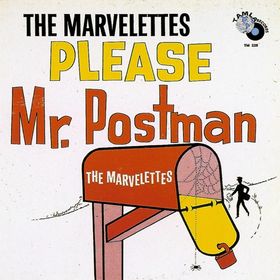
One old rap on libertarians: unrealistic dreamers who want to sell the Post Office. Doesn't seem so crazy now, does it? Here's a news story picked at random.
The loss will leave the Washington-based service unable to make required payments to the federal government and puts it at risk of default as it reaches its $15 billion borrowing limit, Donahoe said in testimony prepared for the Homeland Security and Governmental Affairs Committee hearing today.
Ah, another sinking ship, another bailout. What to do?
-
Kevin Williamson has some good advice: kill the USPS.
We ought to close down the USPS. It was a government agency created to solve a problem, and today that problem is solved, and we no longer need a centralized federal monopoly to facilitate intercity communication, the delivering of parcels, etc. News stories reporting the travails of the USPS invariably note that the agency has been ravaged by e-mail, but this gets things precisely wrong: E-mail has relieved us, nationally, of the burden of maintaining a postal service for delivering letters. The emergence of private couriers, FedEx, UPS, et al., have likewise rendered USPS’s delivery services obsolete. Letters and other “household to household” mail accounts for less than 10 percent of USPS’s volume, most of which is junk mail.
But how will I get my copies of National Review? Oh, well, they're smart. They'll figure out something.
-
Kevin manages to be more radical than Cato; they
"merely" recommend privatization:
To avoid a large and growing burden from being foisted on taxpayers in coming years, the USPS should be privatized and postal markets open for competition from FedEx, UPS, and upstart entrepreneurs.
With privatization, Congress should end its micromanagement of the nation’s postal services. It should rescind the complex laws and regulations on delivery schedules, price caps, restrictions of facility shut-downs, and other business decisions. Such congressional meddling ultimately hurts the consumers that any postal business is supposed to serve by pushing up costs.
Either works for me.
-
But (alas) the proposals actually floating around Congress are even more
moderate. Rep. Darrell Issa has a slick website up
with a countdown clock to the September 30 USPS default date,
a slick video, and a "play the Congressman" game. But he just wants
to get rid of some of the existing Congressional mandates on the USPS:
Saturday delivery, keeping teentsy post offices open, etc. We can do
better.
-
But in Issa's favor, the American
Postal Workers Union (APWU)
launched a broadside against him. His
legislation, they claim, "would destroy the Postal Service as we know
it." So that's a plus.
-
The APWU's interests are served by H.R.
1351, legislation introduced by Rep. Steve Lynch (D-MA).
Special note for Granite Staters: guess who's a co-sponsor of H.R. 1351? Our very own RINO, Charlie Bass.
-
There are other worse proposals than Issa's. Here's
an op-ed by Senator Susan Collins (RINO-Maine) whose maine concern (heh)
is keeping the Post Office on tiny Matinicus Island, 20 miles offshore
from Rockland, open. Unsurprisingly, hers is a business-as-usual
approach.
Josh Barro has a good response:
For some reason, politicians talk about living in rural America as though it were an involuntary disease whose sufferers deserve offsetting federal subsidies. But nobody is forcing anybody to live in a remote town in northern Maine. If you want to live there, you should pay a market price to have things delivered to you. If you don’t like paying for that, you can move. It’s not my responsibility to subsidize your postal service so you can live the rural lifestyle you enjoy at a below-market cost.Tough love for those hicks living out in the sticks.
![[The Blogger and His Dog]](/ps/images/me_with_barney.jpg)



